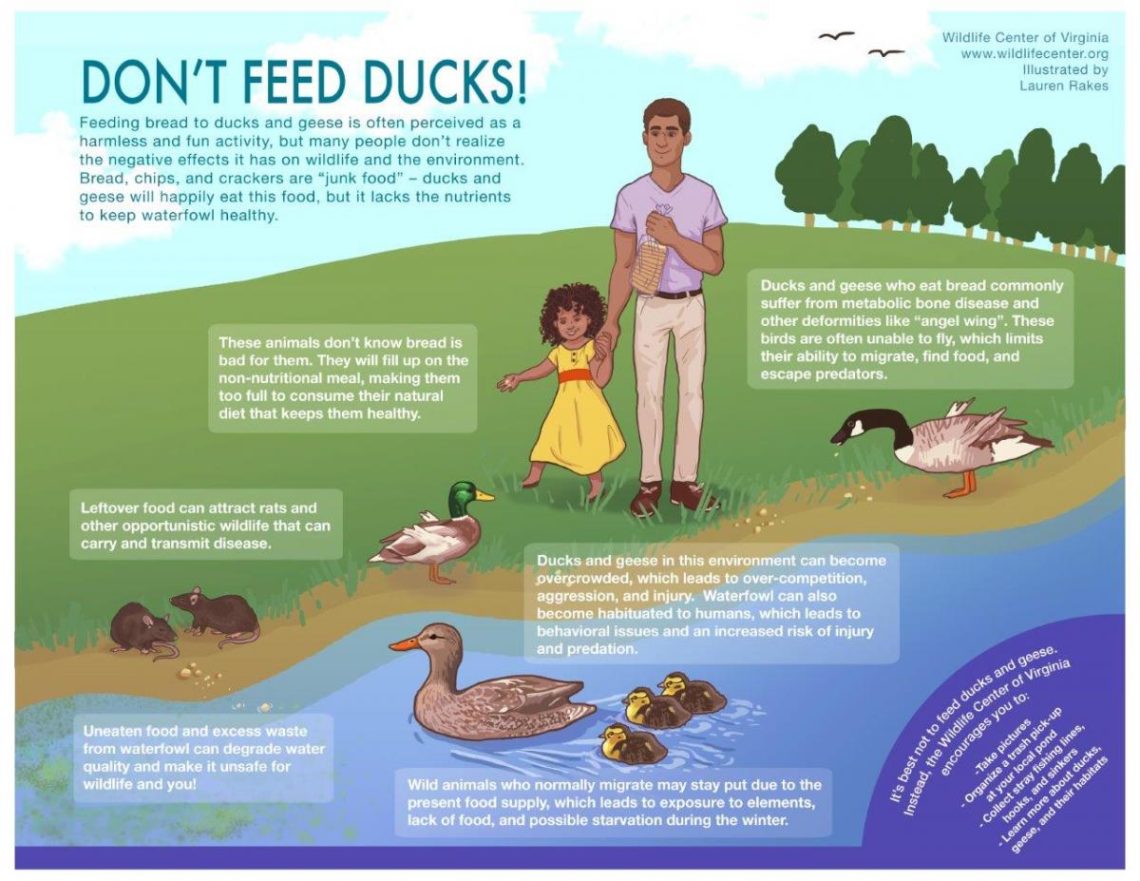
What can you feed wild and domestic ducks in various conditions
One of the industries for obtaining protein products for humans is poultry farming. A large volume in this sector of products is given to duck meat. Duck farms are being built everywhere as the most cost-effective food production industry. Duck meat is an indispensable product in the human diet.
Contents
Benefits of duck meat
Many culinary recipes offer a delicious and healthy product. Eating duck meat allows you to:
- cleanse the body of toxins;
- metabolism accelerates;
- the condition of the skin improves;
- potency improves.
If you need to improve the body and not gain extra pounds, you can eat duck with a lot of greens or cook dishes from wild duck. It is emphasized by the researchers that home-grown duck meat is of particular benefit, as it receives natural food on free grazing.
Breeding and raising ducklings
After the duckling hatched, in the first 12 hours of life, he must get a drink of water and during the day, start pecking food. What to feed the duckling during this period? In the first period of life, the main food is a hard-boiled egg, finely chopped or passed through a meat grinder. The egg can be from any breed of bird, not just duck. In the future, cottage cheese is added to the composition of the feeding mixture, and then crushed cereals from cereals. It can be cut from corn, barley, wheat and other cereals.
Three days later, the ventricle of the chick is ready. process green fodder and grass, chopped very finely, is added to the mash. After 10 days, the chicks receive boiled potatoes and greens, which make up half of the products in the daily diet. At the same time, the feed should be semi-dry and contain mineral supplements for filling the goiter and vitamin complexes.
You can’t make food “porridge”, since ducklings cannot clean their noses after such a sticky mass and a livestock attack is possible. Until the ducklings grow up, their feeding regimen changes:
- up to ten days to feed – after 2 hours;
- in the second decade – after 3 hours;
- later – 3 times a day.
This feeding frequency suggests that the birds are free-range after twenty days and additionally peck forage during grazing. The daily feeding rate is reduced, and at night the ducklings are fed well so that they return from free range on their own. The free keeping of ducklings allows you to save feed, from the age of two months, transferring the bird to two meals a day.
If ducklings grow up without free movement, they have there should always be drinking water and in the diet chopped duckweed and other aquatic greens. No more than 45 minutes are allotted for eating food, or its amount in the subsequent distribution decreases.
Ducklings for meat
At two months, ducklings of meat breeds begin to prepare for slaughter, as they reach by this time two kilograms of weight and have soft muscle mass. They are only fed for two weeks. At the same time, fish products are excluded from the diet and the amount of protein feed, even cottage cheese, increases. In the last week, to increase fat in the diet, a lot of potatoes are added to the mash and the motor activity of the young animals, ready for slaughter, is limited. Raising ducks for meat is much more profitable than raising chickens.
Keeping ducks
The breeding stock of ducks is kept at home for the purpose of obtaining eggs, which are a dietary product and obtaining marketable young animals. There is no difficulty in creating a food base for ducks. They are omnivores. But to get a productive herd, you need a balanced diet. Based on the need for products per head, you can calculate the need for the entire flock. One head for winter feeding is required.
For proper metabolism the body requires trace elements – copper, phosphorus, calcium, manganese, which can only be obtained with a balanced diet.
Based on the need, food is stored, including green. At the same time, egg production will correspond to the norm.
feed property
To get a complete diet, feed should contain:
- proteins of plant and animal origin;
- mineral additives;
- vitamins.
Protein is of animal and vegetable origin. Animals include all larvae eaten by ducks and waste from the table or the addition of fish products. Dairy products are also a source of animal protein. All kinds of plants are sources of vitamins, plant proteins and trace elements.
However, to create a complete diet there are combined granules, in the composition of which, in the ratio necessary for good nutrition, all feed additives and the main components and premixes are laid. They also add lysine and methionine, essential amino acids.
Feeding with the use of compound feed will be the most balanced. The composition of the feed should include up to 80% grain, 5% animal feed and vegetable protein, up to 10% grass and root crops. At the same time, there should always be shell rock, sand and gravel in the room.
Do you feed wild ducks?
In recent years, in non-freezing reservoirs of the middle lane and even in regions with frosty winters, they settled ducks that don’t fly to warmer climes. There are many reasons for this, but one of them was the human factor. Seeing a free-swimming bird in the park, vacationers immediately seek to feed it. Pieces of bread, sweets and everything that came to hand are thrown into the pond. Is food beneficial?
Healthy birds in normal living conditions should get their own food. Permanent top dressing only harm ducks, as they do not always receive healthy food and lose the ability to forage on their own.
Migratory birds, having found a food base without tiring flights, lose this centuries-old instinct and, as a result, they cannot survive in winter conditions without human help. Therefore, ornithologists do not welcome feeding birds in the wild, unless a threatening situation is created.
Foods that won’t harm the bird
If you want to treat a bird or an injured duck requires feeding, then it would be best to give germinated grain as a treat. Ducks almost never see green food in city ponds. Therefore, soft, finely chopped grass with cottage cheese and grains or cereals with a top layer of the shell will be the best treat. You can throw small balls into the water.
Grated cheese will be a good treatwhich does not immediately sink in water. Soft fruits and berries floating in the water are also pecked by the bird with pleasure and benefit. Small fish or a worm will also be a useful treat for a duck. You should not just lean on a grain diet. Bread is fed to everyone and always, and delicacies only to those who really want to do a good deed.
Conclusion
In order not to harm nature, don’t help wild ducks, flown into human habitats. It will be better for them to eat the usual food and continue a life independent of people. If you need to feed the duck, you can use grain mixtures, bird feed, or green soft fruits, herbs or berries.





